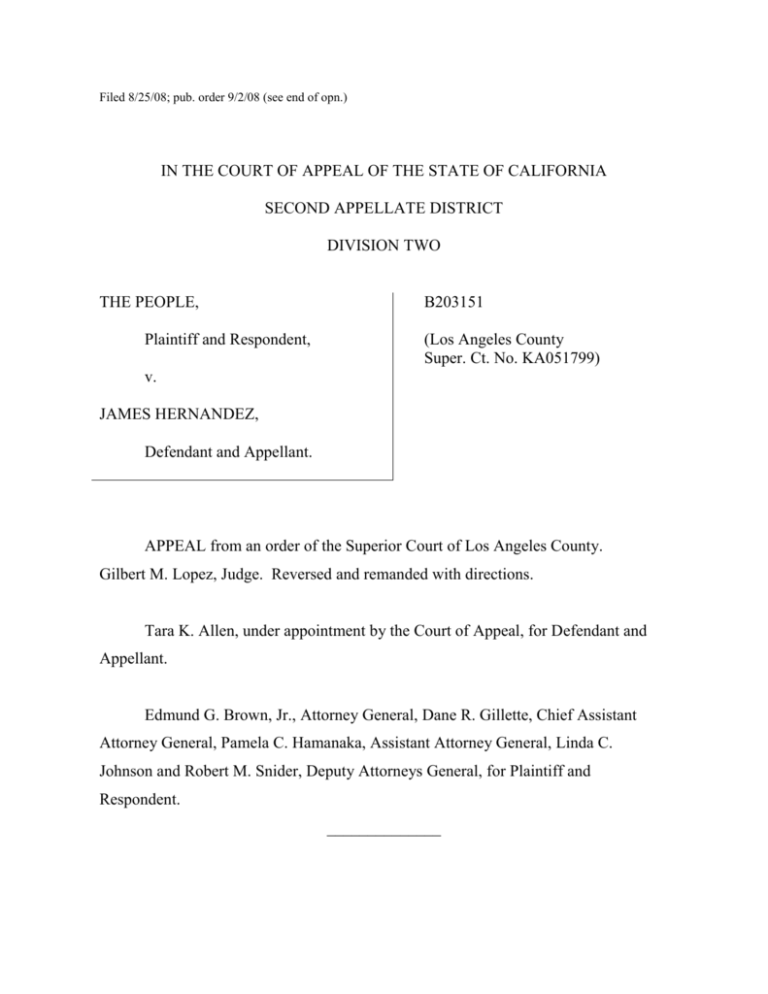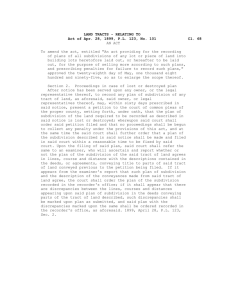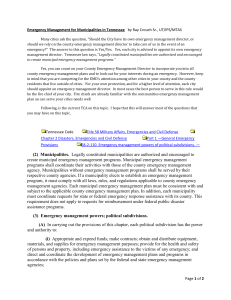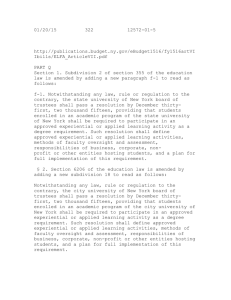
Filed 8/25/08; pub. order 9/2/08 (see end of opn.)
IN THE COURT OF APPEAL OF THE STATE OF CALIFORNIA
SECOND APPELLATE DISTRICT
DIVISION TWO
THE PEOPLE,
Plaintiff and Respondent,
B203151
(Los Angeles County
Super. Ct. No. KA051799)
v.
JAMES HERNANDEZ,
Defendant and Appellant.
APPEAL from an order of the Superior Court of Los Angeles County.
Gilbert M. Lopez, Judge. Reversed and remanded with directions.
Tara K. Allen, under appointment by the Court of Appeal, for Defendant and
Appellant.
Edmund G. Brown, Jr., Attorney General, Dane R. Gillette, Chief Assistant
Attorney General, Pamela C. Hamanaka, Assistant Attorney General, Linda C.
Johnson and Robert M. Snider, Deputy Attorneys General, for Plaintiff and
Respondent.
______________
In 2001, James Hernandez was convicted of oral copulation with a person under
the age of 16 (§ 288a, subd. (b)(2))1 upon a plea of no contest. The trial court placed
him on five years’ probation subject to 270 days in county jail and ordered him to
register as a sex offender under section 290, subdivision (a)(1)(A).2 He appeals from
an order denying his 2007 motion seeking to terminate the mandatory, lifetime
requirement that he register as a sex offender. Appellant contends that that
requirement violates equal protection under the state and federal Constitutions when
applied to convictions of section 288a, subdivision (b)(2). Respondent contends that
we should dismiss this appeal because appellant has failed to obtain a certificate of
probable cause pursuant to section 1237.5.
We reverse and remand with directions.
PROCEDURAL AND FACTUAL BACKGROUND
In 2001, appellant pled no contest to one count of oral copulation with a person
under 16 years of age (§ 288a, subd. (b)(2)).3 At the time of the offense, appellant was
22 years old and participated in oral copulation with a 14 year old.4 Appellant was
placed on five years’ formal probation, ordered to serve 270 days in county jail and
ordered to register with local police as a sex offender pursuant to section 290,
subdivision (a)(1)(A).
1
All further statutory references are to the Penal Code unless otherwise
indicated.
2
Section 290 underwent major revisions, reorganization and renumbering in
2007, effective October 13, 2007. We refer to that statute as it read and was numbered
at the time appellant moved to vacate his mandatory registration requirement in
September 2007.
Section 288a, subdivision (b)(2) provides: “Except as provided in Section 288,
any person over the age of 21 years who participates in an act of oral copulation with
another person who is under 16 years of age is guilty of a felony.”
3
4
Although respondent states that appellant was 23 years old at the time of the
charged offense, it appears the offense occurred a few months before his 23rd
birthday.
2
In 2006, in People v. Hofsheier (2006) 37 Cal.4th 1185 (Hofsheier), the
California Supreme Court held that mandatory sex offender registration under section
290, subdivision (a)(1)(A) violates equal protection as applied to a person convicted of
oral copulation of a minor between the ages of 16 and 18 (§ 288a, subd. (b)(1)).5
In 2007, based upon the decision in Hofsheier, appellant filed a “Motion to
Vacate PC 290 Registration,” seeking to vacate his mandatory registration
requirement, arguing that for purposes of that requirement there is no rational
distinction between oral copulation with a person between 16 and 18 years of age
(§ 288a, subd. (b)(1)) and with a person between 14 and 16 years of age (§ 288a, subd.
(b)(2)). The trial court denied the motion.
DISCUSSION
Appellant contends that the trial court erred in denying his motion to terminate
his mandatory sex offender registration requirement. He argues that the analysis in
Hofsheier, finding the mandatory registration requirement to be a denial of equal
protection as applied to section 288a, subdivision (b)(1), is equally applicable to
subdivision (b)(2). There is no logical difference between orally copulating a minor
under 18 years of age and doing so to a minor under 16 years of age.
Respondent agrees with appellant but raises the preliminary question of whether
appellant’s contention is cognizable on appeal without a certificate of probable cause.
Respondent argues that this contention is in substance a challenge to the validity of his
plea and hence requires a certificate of probable cause.
We conclude that this appeal is cognizable without a certificate of probable
cause and that the mandatory sex offender statute is unconstitutional as applied to
section 288a, subdivision (b)(2).
Section 288a, subdivision (b)(1) provides: “Except as provided in Section 288,
any person who participates in an act of oral copulation with another person who is
under 18 years of age shall be punished by imprisonment in the state prison, or in a
county jail for a period of not more than one year.”
5
3
I. Certificate of probable cause
Appellate jurisdiction is purely statutory; a judgment or order is not appealable
unless expressly made so by statute. (People v. Mazurette (2001) 24 Cal.4th 789,
792.) Section 1237 authorizes appeals from judgments of conviction (§ 1237, subd.
(a)) and from “any order made after judgment, affecting the substantial rights of the
party.” (§ 1237, subd. (b).) But section 1237.5 provides that generally no appeal may
be taken from a judgment of conviction on a plea of guilty or no contest.6 Excepted
from this limitation are appeals based on “reasonable constitutional, jurisdictional, or
other grounds going to the legality of the proceedings” (§ 1237.5, subd. (a); People v.
Hunter (2002) 100 Cal.App.4th 37, 41; People v. Hobbs (1994) 7 Cal.4th 948, 955),
but only if a certificate of probable cause is obtained (§ 1237.5, subd. (b)). An
appellate court need not address a certificate issue raised by a defendant on appeal
from a judgment of conviction based on a guilty or no contest plea when a certificate
of probable cause has not been properly obtained. (See People v. Mendez (1999) 19
Cal.4th 1084, 1095.)
A postplea question not challenging the validity of a guilty plea is a
noncertificate issue that may be raised on appeal after a guilty or no contest plea
without a certificate of probable cause. (People v. Kaanehe (1977) 19 Cal.3d 1, 8;
People v. Mendez, supra, 19 Cal.4th at p. 1100; § 1237, subd. (b).) The certificate
requirement is inapplicable “if the appeal is based upon grounds that arose after entry
of the plea and that do not affect the validity of the plea.” (People v. French (2008) 43
Cal.4th 36, 43.) “In determining whether section 1237.5 applies to a challenge of a
Section 1237.5 states: “No appeal shall be taken by the defendant from a
judgment of conviction upon a plea of guilty or nolo contendere, or a revocation of
probation following an admission of violation, except where both of the following are
met: [¶] (a) The defendant has filed with the trial court a written statement, executed
under oath or penalty of perjury showing reasonable constitutional, jurisdictional, or
other grounds going to the legality of the proceedings. [¶] (b) The trial court has
executed and filed a certificate of probable cause for such appeal with the clerk of the
court.”
6
4
sentence imposed after a plea of guilty or no contest, courts must look to the substance
of the appeal: ‘the crucial issue is what the defendant is challenging, not the time or
manner in which the challenge is made.’ [Citation.] Hence, the critical inquiry is
whether a challenge to the sentence is in substance a challenge to the validity of the
plea, thus rendering the appeal subject to the requirements of section 1237.5.
[Citation.]” (People v. Panizzon (1996) 13 Cal.4th 68, 76.) Deciding whether an
appeal is in substance a challenge to the plea or the sentence can “involve[ ]
difficult . . . line-drawing.” (People v. Buttram (2003) 30 Cal.4th 773, 790.)
Here, appellant appeals the denial of his postplea motion to terminate his
mandatory sex offender registration requirement on the ground that it violates equal
protection. He does not seek to retract his no contest plea or otherwise challenge its
validity. He does not argue that the plea bargaining process was invalid or that he
entered his plea as the result of any misrepresentation by the court. If appellant
prevails, his conviction based on his plea bargain will remain valid and unaffected.
This postplea motion is not a substantive attack on the validity of the plea for
another reason. The mandatory sex offender registration requirements that were the
basis of the postplea motion were not a part of his plea, and could not be. Registration
as a sex offender is mandatory and is not a permissible subject of a plea agreement
negotiation. (In re Stier (2007) 152 Cal.App.4th 63, 78; People v. McClellan (1993) 6
Cal.4th 367, 380.) Registration cannot be avoided through a plea bargain. (Hofsheier,
supra, 37 Cal.4th at p. 1196; In re Stier, supra, at p. 78.) The mandatory sex offender
registration requirement is analogous to other constitutional and statutory provisions
that, while restricting the rights of convicted felons, are not part of the negotiated plea.
(i.e., Cal. Const., art. II, § 4 [convicted felons in state prison or on parole cannot vote];
Code Civ. Proc., § 203, subd. (a)(5) [convicted felons cannot serve on jury duty]; §
12021 [convicted felons cannot own or possess a firearm]; see also Bus. & Prof. Code,
§ 480, subd. (a)(1) [convicted felons may be prevented from practicing licensed trades
and professions].)
5
Because the postplea motion appealed from did not challenge the validity of the
plea, a certificate of probable cause was not required.
II. Constitutionality of mandatory sex-offender registration
In considering the constitutionality of mandatory sex offender registration, our
starting point is Hofsheier. In that case, a 22-year-old man pled guilty to violating
section 288a, subdivision (b)(1), for participation in voluntary oral copulation with a
16-year-old girl. The trial court placed the defendant on probation, subject to 120 days
in county jail and to mandatory sex offender registration under section 290,
subdivision (a)(1)(A). (Hofsheier, supra, 37 Cal.4th at pp. 1192-1194.) Under that
section, any person convicted of violating section 288a, among other specified
offenses, must register as a sex offender for the rest of his or her life. The defendant
appealed his conviction, contending that he was denied equal protection because a
person convicted of unlawful, voluntary sexual intercourse with a minor under section
261.5,7 under the same circumstances, would not be subject to the mandatory reporting
requirements, but only to discretionary registration under section 290, subdivision
(a)(2)(E).8
Section 261.5, subdivisions (a) through (d) provides: “(a) Unlawful sexual
intercourse is an act of sexual intercourse accomplished with a person who is not the
spouse of the perpetrator, if the person is a minor. For the purposes of this section, a
‘minor’ is a person under the age of 18 years and an ‘adult’ is a person who is at least
18 years of age. [¶] (b) Any person who engages in an act of unlawful sexual
intercourse with a minor who is not more than three years older or three years younger
than the perpetrator, is guilty of a misdemeanor. [¶] (c) Any person who engages in
an act of unlawful sexual intercourse with a minor who is more than three years
younger than the perpetrator is guilty of either a misdemeanor or a felony, and shall be
punished by imprisonment in a county jail not exceeding one year, or by imprisonment
in the state prison. [¶] (d) Any person 21 years of age or older who engages in an act
of unlawful sexual intercourse with a minor who is under 16 years of age is guilty of
either a misdemeanor or a felony, and shall be punished by imprisonment in a county
jail not exceeding one year, or by imprisonment in the state prison for two, three, or
four years.”
7
8
Section 290, subdivision (a)(2)(E) gives the trial court discretion to order any
person to register as a sex offender for any offense. It states: “Any person ordered by
6
Our Supreme Court in Hofsheier limited its decision to “the validity of the
mandatory registration requirement for the first category [section 288a, subdivision
(b)(1)]—voluntary acts of oral copulation when the victim is 16 or 17 years of age.”
(Hofsheier, supra, 37 Cal.4th at p. 1195.) It reasoned that, “‘[t]he first prerequisite to
a meritorious claim under the equal protection clause is a showing that the state has
adopted a classification that affects two or more similarly situated groups in an
unequal manner.’ [Citations.]” (Hofsheier, supra, at p. 1199.) “‘The Equal Protection
Clause . . . imposes a requirement of some rationality in the nature of the class singled
out.’ [Citations.]” (Ibid.) “Under the equal protection clause, we do not inquire
‘whether persons are similarly situated for all purposes, but “whether they are
similarly situated for purposes of the law challenged.”’ [Citation.]” (Id. at pp. 11991200.)
The court concluded that section 288a, subdivision (b)(1) and section 261.5
both concerned sexual conduct with minors and were ‘“sufficiently similar to merit
application of some level of scrutiny to determine whether distinctions between the
two groups justify the unequal treatment.’” (Hofsheier, supra, 37 Cal.4th at p. 1200.)
It found no rational basis for the classification which required lifetime registration for
a sex offender convicted of voluntary oral copulation with a 16-year-old girl but not of
a person convicted of voluntary sexual intercourse with a girl of that age. (Id. at pp.
1201-1207.) The nature of the sexual act alone determined whether the defendant
received mandatory sex offender registration, or if the trial court had discretion. The
arguably more serious offense, sexual intercourse, was not subject to the mandatory
registration requirements whereas the less serious offense, oral copulation, was.
any court to register pursuant to this section for any offense not included specifically
in this section if the court finds at the time of conviction or sentencing that the person
committed the offense as a result of sexual compulsion or for purposes of sexual
gratification. The court shall state on the record the reasons for its findings and the
reasons for requiring registration.”
7
The Supreme Court therefore held that the mandatory sex offender registration
requirement of section 290, subdivision (a)(1)(A), as applied to a person convicted of
orally copulating a 16-year-old (§ 288a, subd. (b)(1)), violated equal protection.
Hofsheier, supra, 37 Cal.4th at p. 1207.) It remanded the case to the trial court to
determine whether the defendant should still be subject to sex offender registration
under the discretionary registration provision. (Hofsheier, supra, at p. 1209.)
In People v. Garcia (2008) 161 Cal.App.4th 475 (Garcia), decided earlier this
year, our colleagues in Division One of this district considered the issue before us;
whether section 288a, subdivision (b)(2), like subdivision (b)(1), also violated equal
protection. In Garcia, the 26-year-old defendant pled guilty in 1985 to voluntary oral
copulation with a person 14 years of age (§ 288a, subd. (b)(2)) and unlawful voluntary
sexual intercourse with a female not his wife under 18 years of age (§ 261.5). The
defendant was placed on five years’ probation and made subject to section 290,
subdivision (a)(1)(A). After Hofsheier was decided, the defendant moved for
resentencing or, alternatively, for a hearing pursuant to Hofsheier to determine
whether lifetime registration as a sex offender was appropriate. (Garcia, supra, at pp.
478-479.) The trial court denied the motion, concluding that under Hofsheier it had
discretion to relieve defendant of mandatory registration, but that it was going to
“‘exercise its discretion and order that the defendant continue his registration.’”
(Garcia, supra, at pp. 479-480.)
Division One concluded that “‘[i]f there is no rational reason for this disparate
treatment [between oral copulation and sexual intercourse] when the victim is 16 years
old, there can be no rational reason for the disparate treatment when the victim is even
younger, 14 years old. Accordingly, Hofsheier applies whether the conviction is under
subdivision (b)(2) or (b)(1) of section 288a,’” and section 290, subdivision (a)(1)(A) is
unconstitutional as applied to section 288a, subdivision (b)(2). (Garcia, supra, 161
Cal.App.4th at p. 482.) Division One reversed the trial court because it concluded that
the trial court had not properly evaluated whether or not to impose the discretionary
registration requirements. (Garcia, supra, at p. 485.) We generally agree that
8
Garcia’s analysis and extension of Hofsheier to section 288a, subdivision (b)(2) is
applicable to appellant in the matter before us.
In its recent decision in People v. Manchel (2008) 163 Cal.App.4th 1108
(Manchel), Division Seven of this district distinguished Hofsheier and “decline[d] to
extend [its] analysis to apply to those convicted of violating section 288a, subdivision
(b)(2).” (Manchel, supra, at p. 1111.) In Manchel, the 29-year-old defendant pled no
contest under section 288a, subdivision (b)(2) to committing oral copulation with a 14year-old girl. The defendant was granted probation and ordered to register as a sex
offender under section 290. Division Seven reasoned that because the defendant was
more than 10 years older than his 14-year-old victim, his conduct also violated section
288, subdivision (c)(1).9 That section subjects the defendant to mandatory sex
offender registration for lewd acts, including both oral copulation and sexual
intercourse, rendering the equal protection analysis of Hofsheier “fundamentally
alter[ed].” (Manchel, supra, at p. 1114.)
Manchel reasoned that in Hofsheier the analysis “turned on the disparity in
treatment of an adult offender who engaged in different kinds of sexual conduct with a
16-year-old minor—the fact that engaging in voluntary oral copulation landed a person
in the category of mandatory registration when having voluntary sexual intercourse
Section 288, subdivisions (a) and (c)(1) state in pertinent part: “(a) Any person
who willfully and lewdly commits any lewd or lascivious act, including any of the acts
constituting other crimes provided for in Part 1, upon or with the body, or any part or
member thereof, of a child who is under the age of 14 years, with the intent of
arousing, appealing to, or gratifying the lust, passions, or sexual desires of that person
or the child, is guilty of a felony and shall be punished by imprisonment in the state
prison for three, six, or eight years. . . . [¶] . . . [¶] (c)(1) Any person who commits
an act described in subdivision (a) with the intent described in that subdivision, and the
victim is a child of 14 or 15 years, and that person is at least 10 years older than the
child, is guilty of a public offense and shall be punished by imprisonment in the state
prison for one, two, or three years, or by imprisonment in a county jail for not more
than one year. In determining whether the person is at least 10 years older than the
child, the difference in age shall be measured from the birth date of the person to the
birth date of the child.”
9
9
with the same victim would not.” (Manchel, supra, 163 Cal.App.4th at p. 1114.)
“[T]he only matter that determined whether [the defendant] was subject to mandatory
registration for his voluntary sexual conduct with that 16-year-old minor was whether
the sexual offense was oral copulation or intercourse.” (Ibid.) But “[t]his core
element” of Hofsheier is missing when section 288 applies. The defendant in Manchel
fell “within statutes that provide for mandatory registration regardless of whether he
engaged in intercourse or oral copulation, [and he] cannot establish that he is similarly
situated to another group of offenders who are not subject to mandatory sex offender
registration.” (Manchel, supra, at p. 1115.) The “nature of the sexual act was not
determinative of whether [the defendant in] Manchel was subject to mandatory
registration: whether sexual intercourse or oral copulation took place, his conduct
subjected him to mandatory registration under the Penal Code.” (Ibid.)
Manchel also distinguished Garcia because the issue of the effect of section
288 on the equal protection analysis was apparently not raised in that case.10
We need not decide whether or not we agree with Manchel’s analysis, because,
as in Hofsheier, appellant’s offense here does not fall within section 288, as his victim
was 14 years old, therefore not within section 288, subdivision (a), and he was not
more than 10 years older than her, therefore not within section 288, subdivision
(c)(1). Consequently, the only factor that determined that he was subject to
mandatory registration was that his offense was oral copulation and not sexual
intercourse.
10
It appears that Manchel’s section 288 analysis would be applicable in Garcia,
as the defendant in Garcia was involved in oral copulation with a 14-year-old girl
when he was 26, more than 10 years older. Hence, like the Manchel defendant, he,
too, could have been subject to mandatory sex offender registration for either oral
copulation or intercourse under section 288, subdivision (c)(1).
10
DISPOSITION
The order appealed from is reversed. On remand, the trial court is directed to
remove the requirement appellant register as a sex offender pursuant to subdivision
(a)(1)(A) of section 290, and to determine whether appellant is subject to discretionary
registration pursuant to subdivision (a)(2)(E) of section 290, and, if so, to exercise its
discretion whether to require defendant to register under that provision.
________________, P. J.
BOREN
We concur:
____________________, J.
DOI TODD
____________________, J.
ASHMANN-GERST
11
CERTIFIED FOR PUBLICATION
IN THE COURT OF APPEAL OF THE STATE OF CALIFORNIA
SECOND APPELLATE DISTRICT
DIVISION TWO
THE PEOPLE,
B203151
Plaintiff and Respondent,
(Los Angeles County
Super. Ct. No. KA051799)
v.
ORDER CERTIFYING OPINION
FOR PUBLICATION
JAMES HERNANDEZ,
Defendant and Appellant.
THE COURT:
The opinion in the above entitled matter filed on August 25, 2008, was not
certified for publication in the Official Reports.
For good cause it now appears that the opinion should be published in the
Official Reports and it is so ordered.
12









